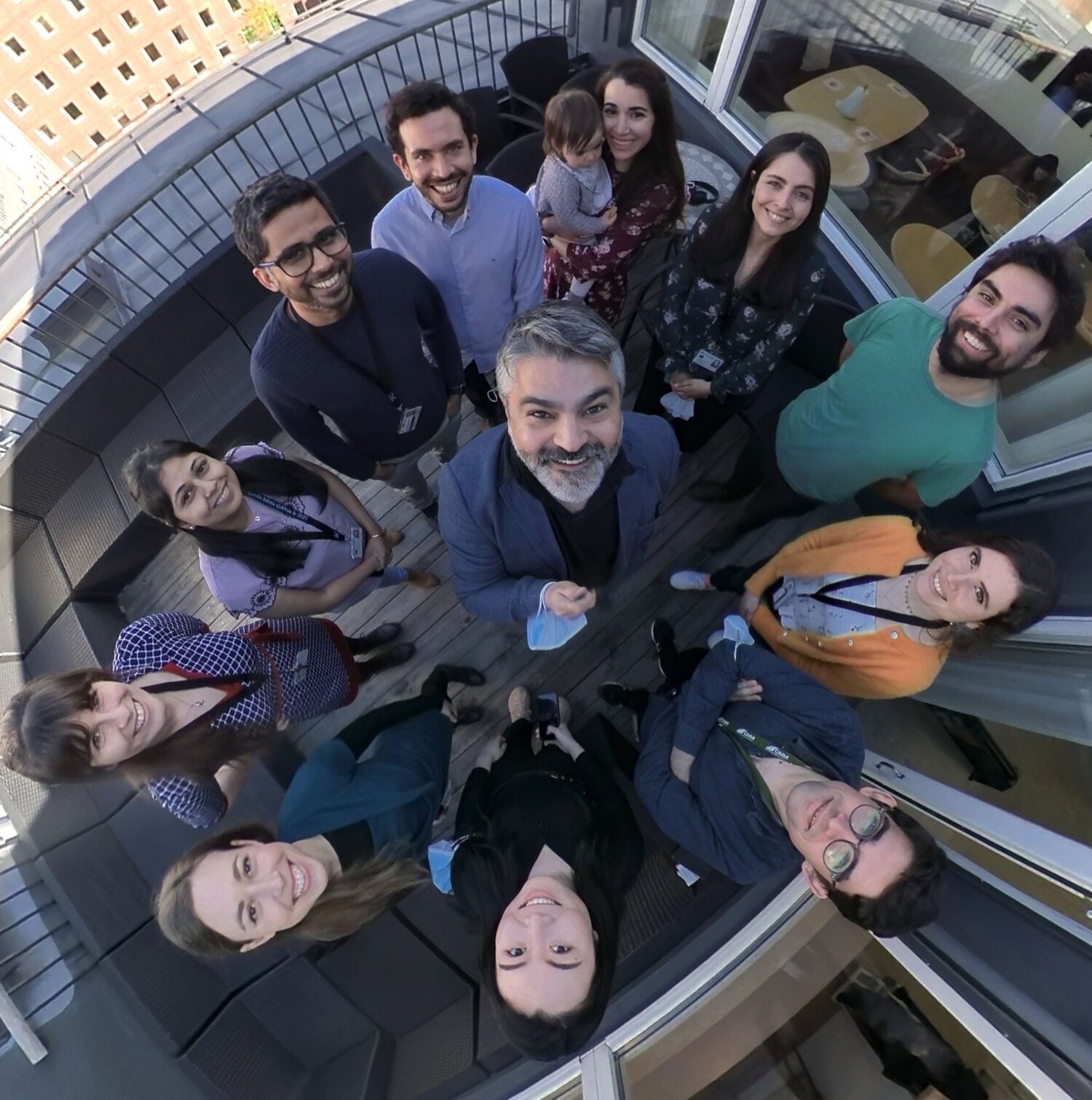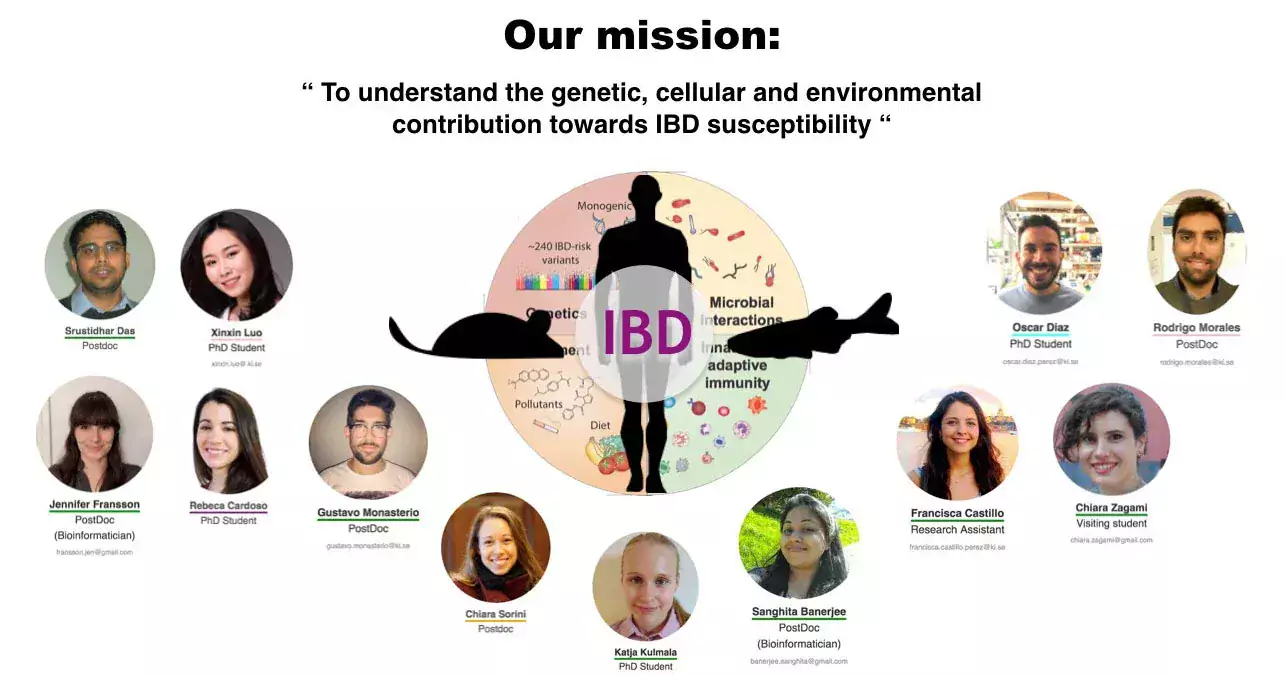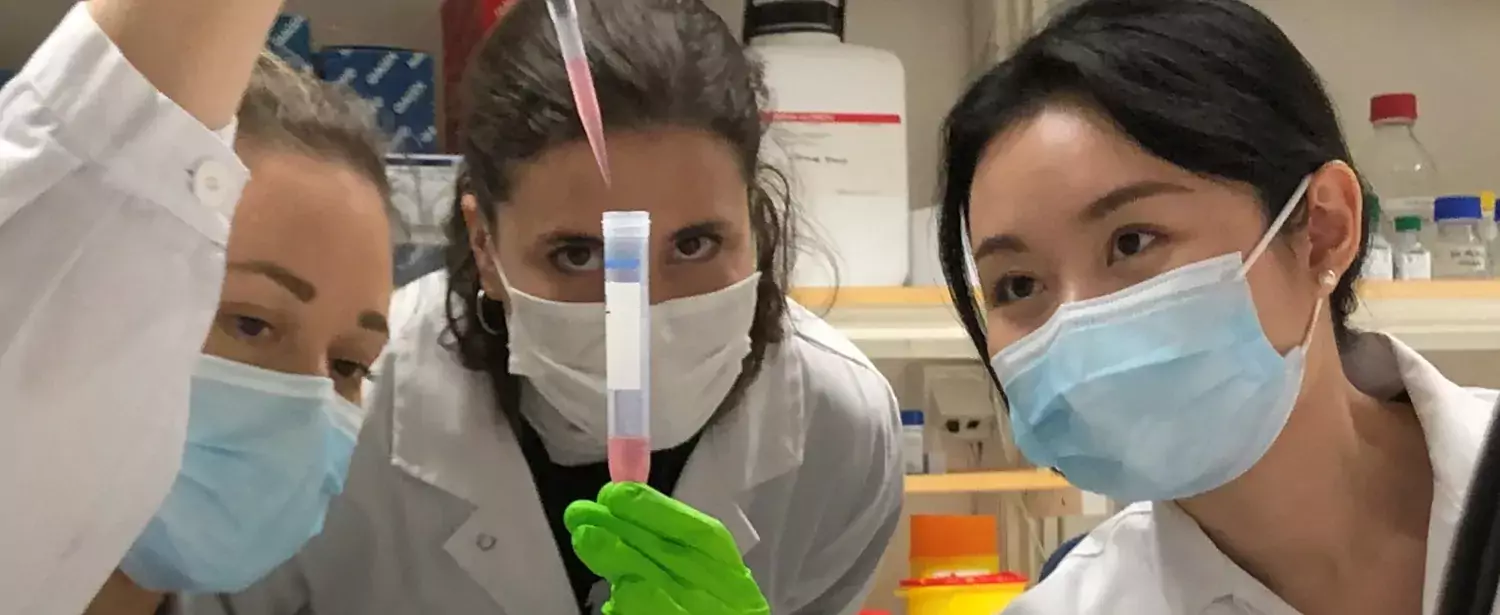Picture above: Chiara Sorini, Chiara Zagami and Xinxin Luo in the lab. Photo: Eduardo Villablanca.
Research interests
Mucosal Immunology, Oral tolerance, Inflammatory Bowel Diseases.
Inflammatory bowel disease (IBD), including Crohn’s disease (CD) and ulcerative colitis (UC), is a manifestation of an inappropriate inflammatory response to intestinal microorganisms in genetically susceptible individuals. IBD is a multifactorial complex disease, which is believed to originate from anomalous balance between tolerogenic and inflammatory immune responses against “self” antigens. Although substantial progress has been made over the last decade in defining the genetic architecture of IBD, there is currently no cure likely due to a yet incomplete understanding of the causes leading to IBD.

Research focus
Our lab that lies at the interface of immunology, human health, biological engineering, and systems biology, is seeking to define the complex dynamics of host-environment interactions required to sustain intestinal homeostasis, how breakdown in these interactions may lead to intestinal inflammatory disorders, and how we can promote mucosal healing to reverse the intestinal damage caused by inflammation.
The main focus of our lab is to gain insights into the mechanisms that underlie the initiation and resolution of inflammatory bowel disease (IBD) to eventually develop therapeutics to treat intestinal autoimmune diseases.To accomplish these goals, we have built an interdisciplinary research program that combines the generation of novel experimental models of IBD (zebrafish and mouse), traditional molecular and cellular approaches (e.g. ex vivoimmune cell- intestinal organoid co-culture), cutting-edge technologies (scRNA-seq and spatial transcriptomics), systems biology, and the use of clinical samples. Thus, we are working to provide insights that may lead to novel, rational-based strategies to prevent the initiation of IBD by intervening during its preclinical phase and/or to accelerate and promote tissue regeneration upon damage.
Mission statement

Our mission is to understand the genetic, cellular and environmental contribution towards IBD susceptibility.

